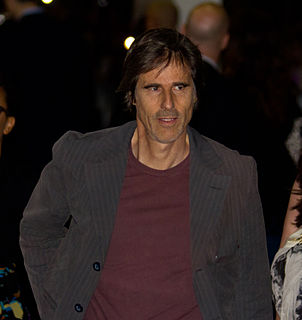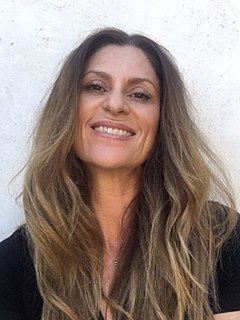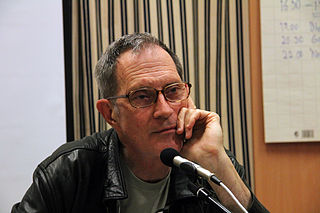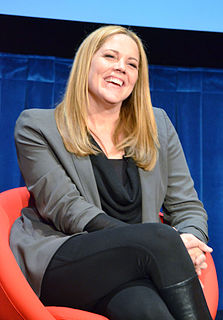A Quote by Raul Garcia
When I decided to make my version of Poe's stories, I wanted to respect the original material or to at least get closer to what his stories are really about. Most other adaptations I've seen sort of follow the story but they never satisfy me as an audience member or as a reader.
Related Quotes
I had this thing where I only wanted to work on original material, no adaptations, and obviously, that changed. I really wanted to have the resources and have the space and the time to tell stories that I've really cared about. I've kind of changed my approach, but I've gotten to do that, to tell stories that I really care about.
I think acting came later in life when I went to college. I started out there. I wasn't a big star in the school plays or anything. I guess I just really liked stories. I was an English-literature major, and that's all about stories and narratives. Film and theater are very powerful storytelling mediums. You sit in a dark room and enter another world. I love that as a member of the audience, and I sort of wanted to get on the other side.
Everything necessary to understand my grandfather lies between two stories: the story of the tiger’s wife, and the story of the deathless man. These stories run like secret rivers through all the other stories of his life – of my grandfather’s days in the army; his great love for my grandmother; the years he spent as a surgeon and a tyrant of the University. One, which I learned after his death, is the story of how my grandfather became a man; the other, which he told to me, is of how he became a child again.
You know, when you make something in live-action, you make it real. And when you are inspired by and determined to honor the original - the most original version of the 'Mulan' story - then you have to acknowledge that this is a story about a young woman who disguises herself as a man and goes to war.
All the stories of the Bible that I know came to me first from my grandfather's lips... He would see stories in everything. He told stories very easily and very generously, so I loved him for that. He was a simple man, a Victorian; he was born in 1890-something. He saw no reason and had never seen any reason to question his Christian faith. His faith was strong and simple and that's it. And I, like his other grandchildren and the children in his parish, sheltered underneath it.
Literature for me… tries to heal the harm done by stories. (How much harm? Most of the atrocities of history have been created by stories, e.g., the Jews killed Jesus.) I follow Sartre that the freedom the author claims for herself must be shared with the reader. So that would mean that literature is stories that put themselves at the disposal of readers who want to heal themselves. Their healing power lies in their honesty, the freshness of their vision, the new and unexpected things they show, the increase in power and responsibility they give the reader.
AS SOMBRAS DA ALMA. THE SHADOWS OF THE SOUL. The stories others tell about you and the stories you tell about yourself: which come closer to the truth? Is it so clear that they are your own? Is one an authority on oneself? But that isn't the question that concerns me. The real question is: In such stories, is there really a difference between true and false? In stories about the outside, surely. But when we set out to understand someone on the inside? Is that a trip that ever comes to an end? Is the soul a place of facts? Or are the alleged facts only the deceptive shadows of our stories?
The more foreign to me, to my existence, to your core existence, the more foreign the foreign language, it's really moving to me to think, to get to experience my own story crossing those boundaries. To have that experience that I so cherished as a reader. I can't believe this. To me, it's really nice because that would be a thing where I'm like, "There may be lots of Jews in my work. I'm not writing stories for Jews. I'm telling stories about people, and Jews are people, too."
Stories? We all spend our lives telling them, about this, about that, about people … But some? Some stories are so good we wish they’d never end. They’re so gripping that we’ll go without sleep just to see a little bit more. Some stories bring us laughter and sometimes they bring us tears … but isn’t that what a great story does? Makes you feel? Stories that are so powerful … they really are with us forever.
































